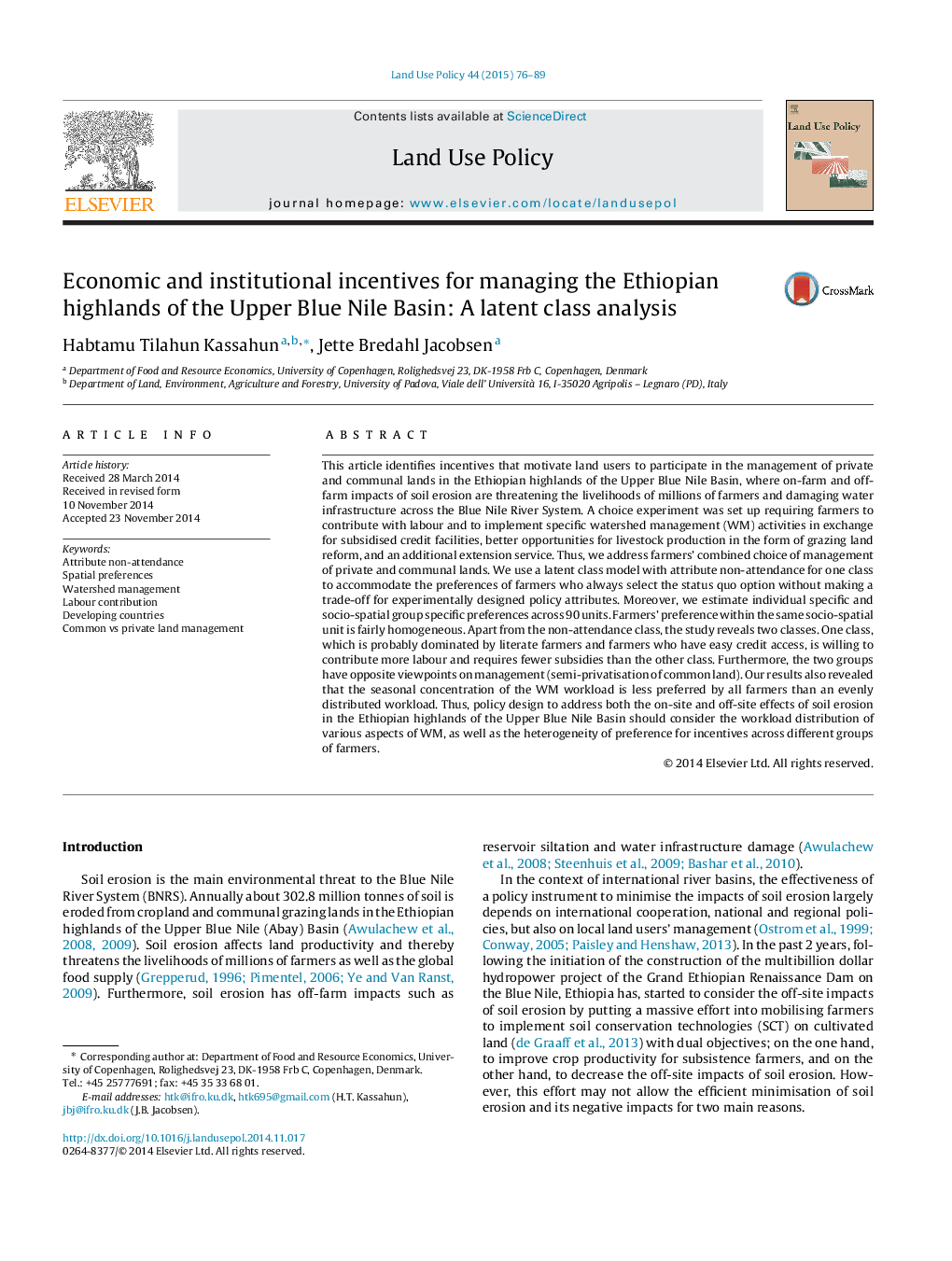| کد مقاله | کد نشریه | سال انتشار | مقاله انگلیسی | نسخه تمام متن |
|---|---|---|---|---|
| 6548264 | 160100 | 2015 | 14 صفحه PDF | دانلود رایگان |
عنوان انگلیسی مقاله ISI
Economic and institutional incentives for managing the Ethiopian highlands of the Upper Blue Nile Basin: A latent class analysis
ترجمه فارسی عنوان
انگیزه های اقتصادی و نهادی برای مدیریت زمین های بلند اتیوپی در حوضه آبی نیل آلفا: تجزیه و تحلیل کلاس های پنهان
دانلود مقاله + سفارش ترجمه
دانلود مقاله ISI انگلیسی
رایگان برای ایرانیان
کلمات کلیدی
ویژگی غیر حضور، ترجیحات فضایی، مدیریت آبخیزداری، سهم کار، کشورهای در حال توسعه، مدیریت مشترک خصوصی در مقابل زمین،
موضوعات مرتبط
علوم زیستی و بیوفناوری
علوم کشاورزی و بیولوژیک
جنگلداری
چکیده انگلیسی
This article identifies incentives that motivate land users to participate in the management of private and communal lands in the Ethiopian highlands of the Upper Blue Nile Basin, where on-farm and off-farm impacts of soil erosion are threatening the livelihoods of millions of farmers and damaging water infrastructure across the Blue Nile River System. A choice experiment was set up requiring farmers to contribute with labour and to implement specific watershed management (WM) activities in exchange for subsidised credit facilities, better opportunities for livestock production in the form of grazing land reform, and an additional extension service. Thus, we address farmers' combined choice of management of private and communal lands. We use a latent class model with attribute non-attendance for one class to accommodate the preferences of farmers who always select the status quo option without making a trade-off for experimentally designed policy attributes. Moreover, we estimate individual specific and socio-spatial group specific preferences across 90 units. Farmers' preference within the same socio-spatial unit is fairly homogeneous. Apart from the non-attendance class, the study reveals two classes. One class, which is probably dominated by literate farmers and farmers who have easy credit access, is willing to contribute more labour and requires fewer subsidies than the other class. Furthermore, the two groups have opposite viewpoints on management (semi-privatisation of common land). Our results also revealed that the seasonal concentration of the WM workload is less preferred by all farmers than an evenly distributed workload. Thus, policy design to address both the on-site and off-site effects of soil erosion in the Ethiopian highlands of the Upper Blue Nile Basin should consider the workload distribution of various aspects of WM, as well as the heterogeneity of preference for incentives across different groups of farmers.
ناشر
Database: Elsevier - ScienceDirect (ساینس دایرکت)
Journal: Land Use Policy - Volume 44, March 2015, Pages 76-89
Journal: Land Use Policy - Volume 44, March 2015, Pages 76-89
نویسندگان
Habtamu Tilahun Kassahun, Jette Bredahl Jacobsen,
